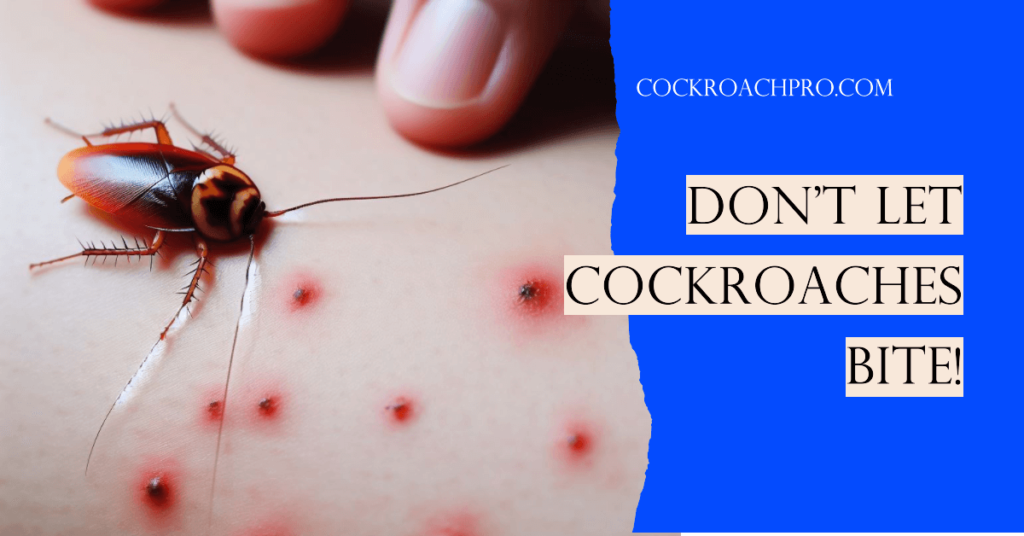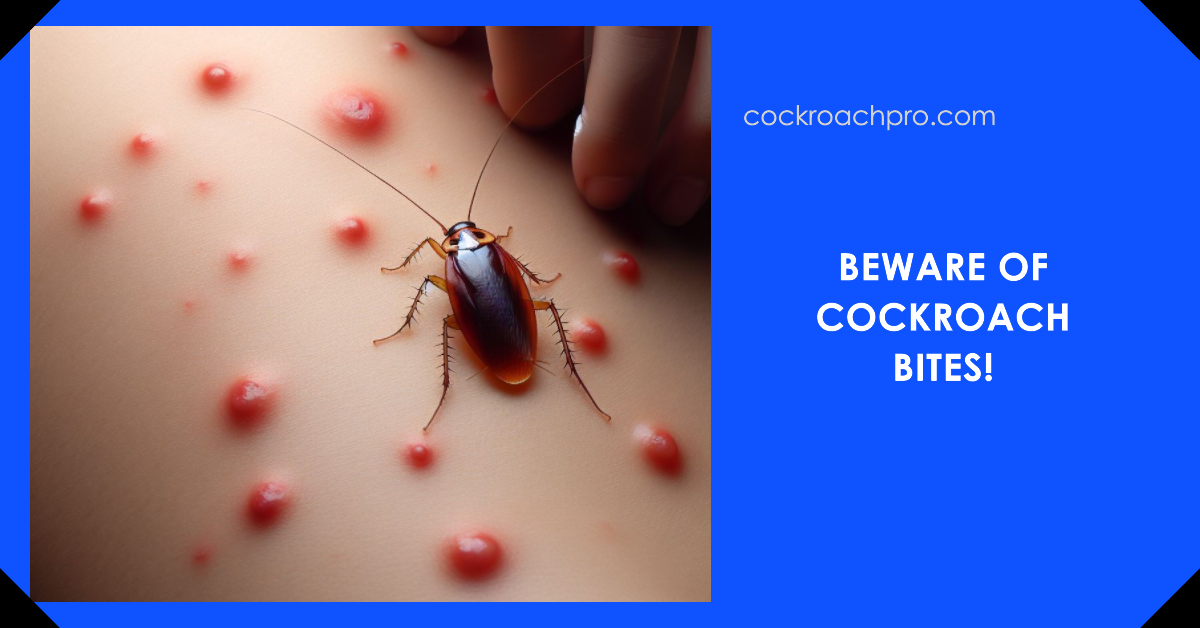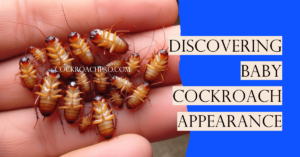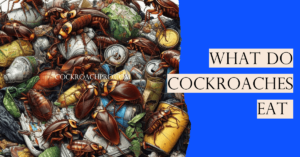Do cockroaches bite or it is just a misconception? The is yes indeed some cockroaches do bite in a rare circumstances and I was one of them.
Cockroaches, those ubiquitous pests that often scuttle across our kitchen floors in the dead of night, have long been the subject of curiosity and, at times, fear.
One of the most common questions that people have about cockroaches is, “Do cockroaches bite?” In this article, we will not only answer this question but also explore the fascinating world of these insects in greater detail.
The World of Cockroaches
Before we dive into the intricacies of cockroach bites, let’s gain a better understanding of these resilient insects. Cockroaches belong to the order Blattodea and are known for their adaptability and survival instincts.
They can be found in a wide range of environments, from homes to sewers, and even forests. Their presence is far more complex than simply being pests, as they play critical roles in ecosystems as both scavengers and decomposers.
Cockroaches are omnivores, which means they eat a variety of things, ranging from decaying plants and organic matter to scraps of food and even other insects.
However, it’s very important to clarify that cockroaches are not naturally inclined to bite humans. They have specialized mouthparts designed for chewing and breaking down food.
Cockroach Feeding Behavior
Cockroaches are primarily scavengers, and their feeding habits reflect this. While they can consume almost anything, their primary focus is on non-living organic matter.
They are not predators and do not actively seek out humans to bite. Instead, they are more interested in finding food, water, and shelter.
do cockroaches bite?
So, do cockroaches bite humans? Yes, they can, but it’s an infrequent occurrence. Cockroaches are more likely to bite when they have no other food sources available. These bites are usually a last resort and not their preferred method of obtaining sustenance.
Cockroach bites, while rare, can result in minor skin irritation and redness. However, they are not known to transmit diseases through biting. The primary health concerns associated with cockroaches are related to the pathogens they carry on their bodies and in their droppings, as well as the allergens they produce.
why do cockroaches bite?
Cockroaches typically bite as a last resort when they are in desperate need of food and cannot find other food sources.
Their primary objective is to search for organic matter, decaying plants, scraps of food, and other non-living materials that they can consume. Cockroaches are scavengers by nature, and their feeding habits are driven by their need for sustenance.
It’s important to note that cockroaches are not naturally inclined to bite humans or animals. Biting is not a part of their typical behavior, and it occurs infrequently.
When cockroaches do bite, it is usually in extreme situations where no other food source is available. Their bites can cause minor skin irritation and discomfort, but they are not known to transmit diseases through biting.
How do you know if you have a cockroach bite?
Identifying a cockroach bite can be determined based on several factors. Typically, such bites manifest as small, itchy, red bumps on the skin, often resembling other insect bites like those from mosquitoes.
Additionally, you may notice localized redness and mild swelling in the affected area, along with a persistent itching sensation. However, it’s essential to keep in mind that cockroach bites are relatively uncommon, and not everyone will experience them.
If you suspect a cockroach bite, maintain proper hygiene by cleaning the affected area, apply an antiseptic to prevent infection, and avoid excessive scratching. If the symptoms persist or worsen, it’s advisable to seek guidance from a healthcare professional for a proper evaluation.
What happens if cockroach bites you?
When bitten by a cockroach, it can result in the following effects:
Skin Irritation: Cockroach bites commonly lead to mild skin irritation. The area where the bite occurred may become red, swollen, and itchy. Although this irritation can be uncomfortable, it is generally not accompanied by pain.
Risk of Infection: Although cockroach bites themselves are not recognized for transmitting diseases, excessive scratching of the bitten area can increase the risk of infection. To minimize the chances of infection, it’s important to maintain proper hygiene and keep the area clean.
Potential Allergic Reactions: In certain instances, individuals may exhibit allergic reactions to cockroach bites. These reactions can range from mild to severe and may include symptoms such as the development of hives, breathing difficulties, or swelling. If there is suspicion of an allergic reaction, it is crucial to seek immediate medical attention.
Psychological Distress: Cockroach bites can also trigger psychological discomfort due to the fear and revulsion associated with these pests. Individuals may experience anxiety or distress following a cockroach bite.

what do cockroaches bite look like?
Cockroach bites typically appear as small, red, and itchy bumps on the skin. They can be similar in appearance to other insect bites or skin irritations. These bites are often accompanied by localized redness and some swelling. The itching sensation is the most common symptom associated with cockroach bites.
It’s important to note that cockroach bites are relatively rare, and most people do not experience them. When they do occur, the reactions can vary from person to person. While the bites can be uncomfortable and irritating, they are not usually painful, and severe allergic reactions are uncommon.
If you suspect you have been bitten by a cockroach, cleaning the affected area with soap and water and applying an antiseptic can help alleviate the discomfort and prevent infection.
do cockroaches bite you in your sleep?
This is a common concern for many people, and it’s important to address it. Cockroaches are nocturnal creatures, and they can be active at night when you’re asleep.
While their primary focus is finding food and shelter, there have been rare cases of cockroaches biting humans, even while they sleep. These bites are usually a last resort for the cockroach when no other food source is available.
Cockroach bites, though infrequent, can lead to minor skin irritation and redness. It’s crucial to note that cockroaches are not known to transmit diseases through biting.
However, the primary health concerns associated with these pests are related to the pathogens they carry on their bodies and their droppings, as well as the allergens they produce.
To reduce the risk of cockroach bites in your sleep, it’s critical to maintain a clean and hygienic living environment. Seal any cracks or openings in your home to prevent their entry, and take steps to eliminate potential food sources.
If you suspect a significant cockroach infestation, consider professional pest control services to address the issue promptly. By following these precautions, you can minimize the chances of cockroaches disturbing your peaceful sleep.
do cockroaches bite hurt?
Cockroach bites are generally not considered painful. In the rare event that a cockroach does bite, the sensation is often described as more of a minor irritation or discomfort rather than outright pain. These bites may result in localized redness or itching, but they do not typically cause significant pain or injury.
It’s worth noting that cockroaches are not natural biters; they usually resort to biting only when no other food source is available. However, the primary concern with cockroaches is not their bites but rather the potential health risks associated with the pathogens they carry and the allergens they produce.
do cockroaches bite itch?
Yes, cockroach bites can cause itching. When a cockroach bites, it can leave behind saliva or tiny particles that can trigger an itchy reaction in the area of the bite. This itching sensation is often more noticeable than pain, and it can lead to localized discomfort.
While cockroach bites are not common, the itching they cause can be bothersome. It’s very important to clean and treat the affected area if you suspect you’ve been bitten by a cockroach to minimize any discomfort and prevent infection.
do cockroaches bite dogs?
Yes, in rare cases, cockroaches can bite dogs. Cockroaches are primarily scavengers, and when a significant infestation occurs, they may bite pets, including dogs.
These bites are usually a result of desperation when the cockroaches cannot find other sources of food. While cockroach bites on dogs are not common, they can cause irritation, redness, and discomfort for your pet.
To prevent such situations, it’s critical to address and eliminate cockroach infestations in your home, as these pests can pose health risks to both humans and pets. Maintaining a clean and hygienic environment, sealing any cracks or openings, and using professional pest control services if necessary can help protect your pets from cockroach bites.
do cockroaches bite or sting?
Cockroaches are known to bite but not to sting. Their primary mode of causing harm is through biting. While it is not a common occurrence, cockroaches may bite humans and pets in rare situations when they are in search of food, and no other food source is available. Their bites are typically not dangerous and may result in minor skin irritation or discomfort.
Stinging, on the other hand, is not a behavior associated with cockroaches. They do not have stingers or venomous glands that can deliver a sting. So, if you’re experiencing discomfort due to a cockroach encounter, it’s more likely to be a result of a bite rather than a sting.
why do cockroaches bite eyelids?
Cockroaches may bite eyelids in extremely rare cases, but it’s not a common occurrence. Cockroaches are more inclined to bite when they are in desperate need of food and cannot find any other sources. Their preference is to feed on organic matter and scraps of food, rather than targeting specific body parts.
If a cockroach happens to bite an eyelid, it is likely because it perceives the area as a source of moisture or is attracted to any residue that may have collected there. The bite, if it occurs, can cause discomfort and irritation. However, it’s essential to emphasize that such incidents are highly uncommon.
The primary concern with cockroaches is not their biting behavior but the diseases they may carry and the allergens they produce. Keeping your living environment clean and free of cockroach infestations is the best way to avoid any such rare occurrences.
What to do if you get bit by a cockroach in your eye?
If you experience a cockroach bite near or in your eye, it is of utmost importance to take immediate action to ensure your well-being and prevent any potential complications. Begin by gently washing the affected area around your eye with clean, lukewarm water, being careful not to rub or scratch the eye, which can further exacerbate the situation.
Refrain from rubbing your eye to avoid introducing contaminants. Seek urgent medical attention, as eye injuries are particularly delicate. Contact an eye specialist or visit an emergency room without delay to have the eye examined, assess any potential damage, and receive the appropriate treatment.
While awaiting medical assistance, maintain the area’s cleanliness and avoid contact with unclean hands, refraining from applying any creams or ointments to the eye without professional guidance.
Cockroach bites in or around the eye area warrant serious attention due to the potential for eye injury, and it is always advisable to prioritize seeking professional medical attention promptly for the best possible outcome.
do cockroaches bite clothes?
Cockroaches do not typically bite or damage clothes. These pests are more focused on finding food and shelter. While they may come into contact with clothing, they are not naturally inclined to feed on fabric or cause damage to it.
However, it’s worth noting that in rare cases, cockroaches might be attracted to clothing items that have food or sweat residues on them. They may nibble on these residues, but it’s not the same as actively biting or damaging the fabric itself.
The primary concern with cockroaches lies in the potential health risks they pose due to the pathogens they carry and the allergens they produce, rather than any harm to clothing.
do cockroaches bite cats?
Cockroaches may occasionally bite cats, but such occurrences are rare. Cockroaches are not natural predators, and their primary behavior is to scavenge for food and shelter. They typically avoid direct contact with animals, including cats.
Cockroach bites on cats are more likely to happen in cases of a significant cockroach infestation, where these pests may come into contact with pets while searching for food. The bites can cause discomfort and irritation for the cat.
To prevent such situations, it’s essential to maintain a clean and hygienic living environment and take measures to eliminate cockroach infestations.
Conclusion
In summary, while cockroaches can bite humans in rare situations, it’s not their typical behavior. The primary concern with cockroaches lies in the diseases they can carry and the allergens they produce. To maintain a healthy and pest-free living environment, it’s crucial to adopt proactive measures to prevent cockroach infestations.
Remember that cockroaches thrive in unsanitary conditions, so keeping your home clean, dry, and well-sealed is the most effective way to avoid interactions with these pests. By understanding their behavior, you can take steps to minimize the risk of cockroach bites and the associated health concerns.



